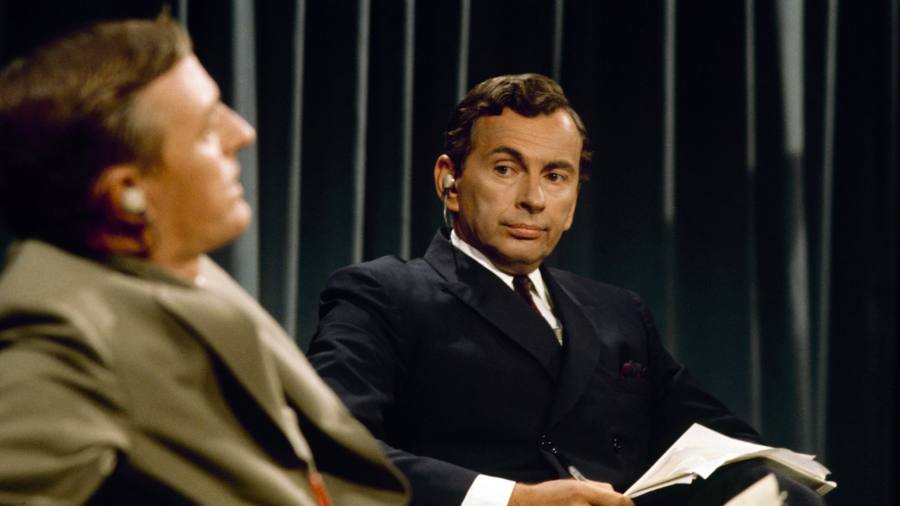It has all been downhill in America since the first six presidents. Western civilisation was never the same after ancient wisdom gave way to the sentimental Gospel. Roosevelt should have stayed out of that damn fool war in Europe and the Pacific. People are breeding too much. The state must stop them.
I like Gore Vidal so much that I involuntarily smile when I see the spine of his essay collection, United States, in my bookcase. Even before his dotty late phase, though, he was a reactionary kind of liberal. If his 1968 debates with the conservative William Buckley Jr still grip us, it is because of the two men’s underlying oneness, not the superficial Democrat vs Republican framing.
Best of Enemies, James Graham’s otherwise fine play about the duel of the drawlers, might have made more of this. I fear much of the audience leaves with the sweet notion in their heads that Vidal would today have been a woke ally. The play wants to suggest that his showdown with Buckley was a trailer for the culture wars, the partisan spite, of now. I have come around to the opposite view.
The debates marked the end of something good, not the start of something bad. It was the last time being politically hard-to-place was normal.
Put it this way. If you tell me what you think about, say, the return of the Benin bronzes, I can infer with some confidence your views on public spending, the EU, rail strikes, immigration, working from home, climate change, Meghan Markle and much else. Nothing connects these subjects. It should be possible to be a small-government Remainer who thinks imperial loot is better off in western museums and who loses sleep to visions of a burning planet. But such a person would stand out now. To take a more concentrated example, lots of people should be anti-lockdown and pro-vaccine mandate. How many do you know?
I have aired Ganesh’s First Law of Politics before, but allow me a recapitulation. People do not work out their beliefs and then join the corresponding tribe. They join a tribe and infer their beliefs from it. The sense of belonging, the group membership, is what hooks people, not the thrill of being right or pursuing a thought on its own terms. Politics has become a team sport, goes the line on this. But even that is too kind. Sports fans are sardonic and irreverent about their own team. It isn’t so central to their identity as to require consistent adherence.
We have lost all sense of how weird it is to seek connection with others through politics. And how new. Watching Buckley and Vidal is a reminder of a less needy age. The former had his own credentials as an apostate of the right: his loose line on marijuana, his Catholicism, his Spanish-speaking intellectualism. Nor was the audience at the time much easier to place. Millions of whites were pro-New Deal and anti-Civil Rights in a way that stumps modern notions of “progressive” and “conservative”.
Noting the change since then is simple enough work. Accounting for it is trickier. One theory suggests itself. The rise of politico-cultural blocs more or less tracks the decline of church membership, trade unions and marriages that go the distance. An atomised population began to cast around for other kinds of belonging, didn’t it?
The mid-20th century voter was heterodox, yes, but heterodox in the way that someone with strong roots could afford to be. With such a firm social anchor, there was less need to seek emotional security in a political tribe. As I’ve used two metaphors for the same thing there, let us keep them coming. A rudder, a bedrock, a cornerstone, a north star: people used to find these things in their personal relationships. In their church, family, factory or town. As modernity scrambled those things, mostly for the good, the need to subsume oneself into a group was going to have to be met some other way.
That turned out to be politics. We live with the wicked results all the time now. The perverse consequences of ostensibly desirable change: Buckley would call this a conservative insight. And I, though a Vidalist, always thought he won those debates.
Email Janan at janan.ganesh@ft.com






























